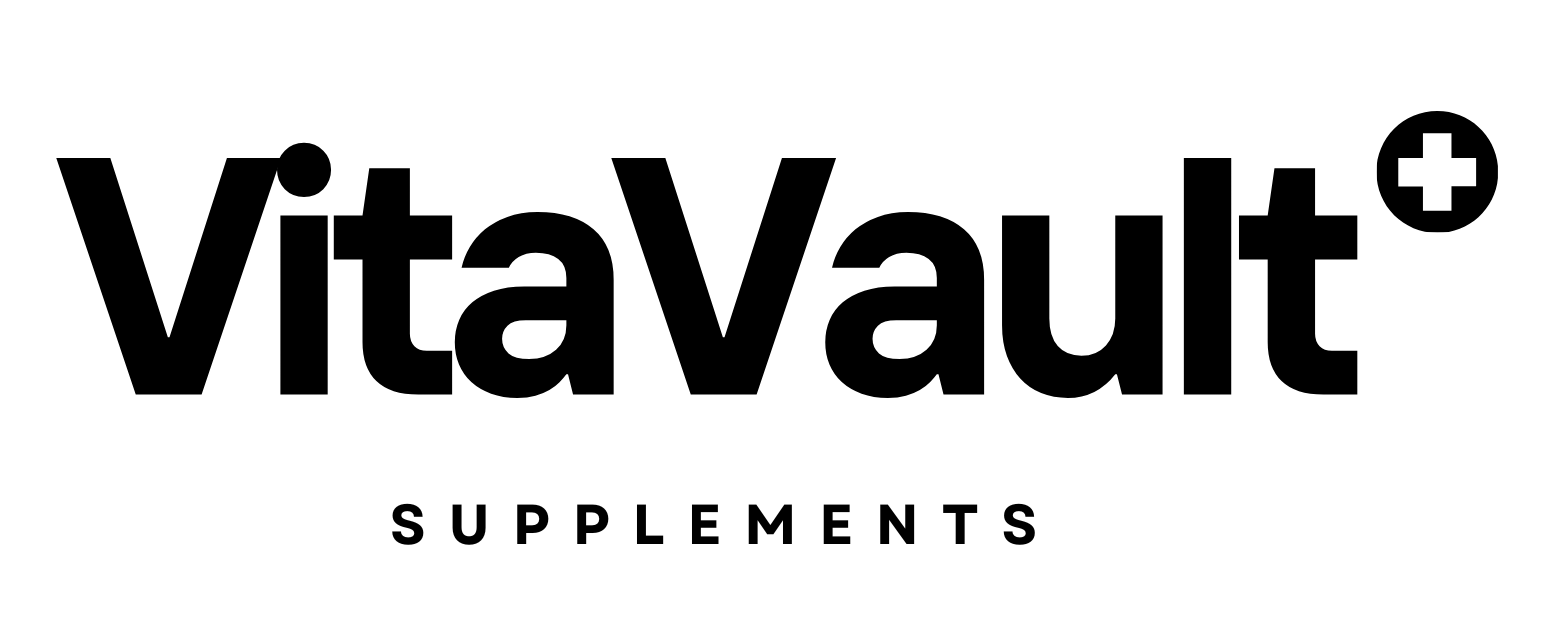Of all the nutrients that are vital to our health, none are more commonly misunderstood than vitamin B9. Far too often lumped into one category, folate and folic acid are not interchangeable terms. Although both serve the same general purpose in the body, how they are metabolized, absorbed, and used is quite distinct. For those on supplements or wishing to supplement their overall long-term health, especially as related to longevity and cell optimization, the difference between these two forms of B9 is significant.
At Vitavault, we build all product and protocol on transparency, clinical research, and clarity. That involves choosing types of nutrients that feed your biology with low resistance. This article deconstructs the science of folate and folic acid, explains how they differ in function and bioavailability, and helps you make better decisions on supplementing your vitamin B9 levels.
What Is Vitamin B9?
Vitamin B9 is a water-soluble vitamin that plays a central role in red blood cell formation, methylation, and DNA synthesis, influencing everything from neurotransmitter production to detoxification. It is especially critical during periods of rapid growth like pregnancy and adolescence but remains relevant to adults worried about aging, heart health, and brain functioning.
The confusion begins with vocabulary. In nutrition labeling and general usage, folic acid and folate are essentially synonyms. But this shorthand glosses over important differences in structure, metabolism, and health effects.
Folate: The Natural Form of Vitamin B9
Folate is a group of naturally occurring compounds found in whole foods such as spinach, kale, broccoli, avocados, lentils, and liver. In its natural state, folate is a compound molecule that your body is well adapted to metabolize, provided that your digestive and enzymatic processes are intact.
When ingested, folate is converted to tetrahydrofolate (THF) and then to 5-methyltetrahydrofolate (5-MTHF), the active form that is used in methylation and other critical biochemical processes. This conversion happens largely in the gut and is tightly regulated by the body.
Interestingly, natural folate will not build up to levels that are problematic since the body metabolizes it in a coenzyme-dependent, feedback-controlled manner. That is part of the reason food-based sources of folate are effective and safe.
Folic Acid: The Synthetic Form in Fortified Foods and Supplements
Folic acid, however, is a synthetic compound that does not exist naturally. It is used in fortified foods and most inexpensive supplements because it is more stable and less expensive to manufacture. When taken in, folic acid needs to be converted into dihydrofolate and ultimately into tetrahydrofolate before becoming the active form of B9 (5-MTHF).
This enzymatic process depends mainly on an enzyme called dihydrofolate reductase (DHFR), which exists in low concentration in most people. This would mean that folic acid is generally poorly converted, and in most cases, is not metabolized in the blood. Some studies have found that unmetabolized folic acid excess can interfere with immune function, camouflage vitamin B12 deficiency, and possibly even increase the risk of some cancers, although ongoing research keeps presenting itself on this point.
For those with MTHFR polymorphisms (a common genetic mutation found in approximately 30 to 50 percent of people), metabolism of folic acid is further impaired. This population particularly benefits from using pre-methylated versions like L-methylfolate (5-MTHF) that bypass the conversion process entirely.
Why This Matters for Supplementation
Folate versus folic acid takes on its most crucial distinction when selecting supplements. Folic acid remains prevalent in low-end multivitamins and prenatal vitamins because of expense, even with increased recognition of its drawbacks. At Vitavault, we subscribe to the philosophy that supplementation should be about biological compatibility, not shelf life or profit.
We use active, bioavailable forms of nutrition such as L-5-MTHF calcium salt (methylfolate) instead of folic acid. Thus, everyone, due to genetics or gastrointestinal health, receives a type of vitamin B9 that is immediately usable in the body.
Advantages of Optimizing Intake of B9
Being able to absorb sufficient active B9 in the body gives a very wide range of health benefits. These are:
Neurological health: Aids mood regulation, mental clarity, and neurotransmitter balance through the support of serotonin, dopamine, and norepinephrine synthesis.
Cardiovascular support: Maintains the balance of homocysteine, a predictor of heart disease and stroke risk.
DNA synthesis and repair: Necessary for healthy cell division, especially concerning aging, fertility, and the repair of tissue.
Fetal development: Prevents neural tube malformations during pregnancy and maintains maternal well-being.
Detoxification: Supports the body's methylation cycle, which is associated with hormone balance, immune response, and elimination of toxins.
How Much Do You Need?
Adults require a daily intake of 400 micrograms of dietary folate equivalents (DFEs), considering different rates of absorption of food-based folate and synthetic folic acid. For pregnant women, this increases to 600 micrograms. However, not many individuals get sufficient from foods alone, especially if their diet is not rich in greens, beans, and liver.
Methylated folate supplementation is a good and safe way of covering your bases, especially if you're sensitive to your methylation status, have genetic polymorphisms, or are interested in proactive anti-aging measures.
At Vitavault, our entire line of supplements is focused on evidence, bioavailability, and individualization. We avoid a cutting-edge or questionable ingredient like folic acid and opt for clinically supported alternatives instead. Our products often include methylated folate or other biologically active forms that work even in the presence of impaired enzyme function or MTHFR mutations.
Our in-house recommendation tools, such as our science-driven health quiz, guide users to whether they would benefit more from a methylated B complex, a longevity stack carefully aimed, or a multivitamin. This is not just helping you "check the box" on your supplements but actually helping you satisfy nutritional requirements in a meaningful way.
Conclusion: Smarter, Not Cheaper
This folate vs. folic acid debate may sound like a technical pedantry, but it does have real-world consequences to your health if you're shelling out money for supplements as part of an extended health plan. Getting it incorrect results in poor absorption, wasted funds, and in some situations, undesirable side effects.
No matter what pregnancy, stress relief, brain support, or longevity you require, maximizing vitamin B9 levels is the foundation. And in the proper form, it's even improved.
You are making better choices with Vitavault. We're not just selling supplements. We offer tools to empower you to take charge of your well-being with confidence, clarity, and science-driven results.
Written by Aryan Adil, BSc (Hons) Sports & Exercise Science


Share:
Active Folate: The most superior, bioavailable form of Folate available
Omega-3 from Fish vs. Algae: Which One Should You Choose?